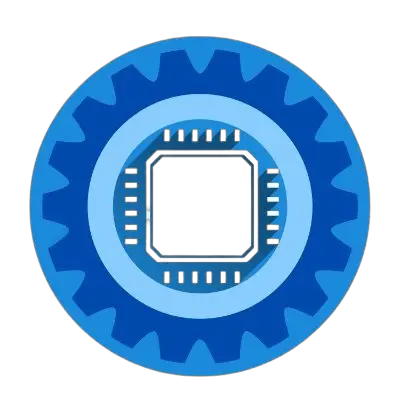Why Does My Laptop Sound Like a Tractor Engine? It’s 11 PM, you are trying to finish up some work before you crash for the night, but your laptop sounds like it is about to clear the runway and takeoff into the stratosphere. You’re sure that you’ve done everything right, but no matter what you do, the sound won’t go away.
You’ve made sure that the laptop isn’t sitting on a fabric surface like a blanket or your bed cover, you’ve set it up on a hard surface like a table or a tray, you have elevated it in a well ventilated area – everything. Yet the throttling of your laptop’s fan is enough to drive you crazy.
What else can you do? We’ve got a few tricks up our sleeves that will help you get rid of this annoying sound once and for all.
Table of Contents
- The Problem
- How do I stop my laptop from making a sound like a jet engine?
- Why does my laptop sound like a motor?
- Why is my laptop making a revving sound?
- Why is my laptop fan so loud all of a sudden?
- Some Solutions To Try Out
- Final Thoughts

The Problem
If you’ve just bought a brand new laptop and it sounds like a jet engine then you are probably going to be able to take it back and ask for it to be looked at. The issue is that most laptops only start getting louder as they age. Why?
On the whole, laptops tend to have some of the quietest fans around, so when a fan starts to become noticeably loud in a laptop then it can be a real pain to deal with for a lot of people. The problem is that the fan that is usually installed in a laptop is designed to operate at lower RPMs when compared to desktop components like CPUs and graphics cards.
If your laptop has ventilation issues, insufficient thermal compound on the CPU, or even a faulty temperature sensor, then your fan could be ramping up and running at full speed.
I’ve seen plenty of posts on the internet about how to fix this, but I wanted to do a bit more than that. I’m going to explain what the problem is and then I’m going to tell you how to fix it.
How do I stop my laptop from making a sound like a jet engine?
Before you can solve this issue you need to understand why it is happening. The main cause of an extra loud fan is due to a process called thermal fan control. It basically means that the hotter your laptop gets, the harder the fans will work to try and dissipate that heat.
Eventually, your laptop may even power off on its own if it reaches a thermal shutdown event state. This is your laptop’s way of protecting itself from damaging the CPU of the laptop, which is a good thing but also very disconcerting if you are using the laptop for some important work when it happens.
Since the fan has to work harder to keep your laptop cool, it makes a lot of noise and will run as fast as it has been programmed to spin as it tries to combat the ever increasing heat.
Thermal fan control
As I mentioned above, laptops generally have some of the quietest fans as far as computer hardware goes. This is because a laptop’s fan has to be powerful enough to keep your laptop cool, but not so loud that it annoys you.
In order to make sure that your laptop is as cool as possible, the thermal fan control system is designed to ramp up the speed of your fan as your laptop heats up. It’s this ramping up of the fan that is causing the noise.
Thermal throttling
Most modern CPUs have a built in safety system that scales back the performance of your CPU (and graphics chipsets too in some cases) as the temperature heads into the higher limits of the system’s settings.
This means that if you are seeing a decrease in performance on your laptop when the fan gets louder, then the chances are good that you are dealing with a heat issue.
Air flow
The easiest way to test how your fan and heat sink are performing is to test the airflow that is being sucked into the laptop and blown out. The general rule of thumb is that the air gets sucked in from the under side of the laptop.
This hot air is then expelled out of the side of the laptop. This is why you get very hot air coming from the ejection vent of a laptop. If you hold your hand near the port and you can’t feel any air coming out, then you probably have an obstruction in the cooling system’s path.
Why does my laptop sound like a motor?
There are a couple of things you can do to fix this problem. The first thing to do is to open up your laptop and clean out the dust, hair and dirt that is collecting in the fan. If this doesn’t work, you can also try changing your fan.
In rare cases there is a bearing in the fan that can fail and seize up over time, so that might resolve the noise issue if you replace the system fan. If this doesn’t work, you can get a new laptop.
Why is my laptop making a revving sound?
As has been noted above, your laptop is not actually revving, it is just trying to cool itself down. It does this by spinning up the fan as fast as it can to try and keep the temperature of the CPU down.
| Brand | Description | Warranty | Check Price | |
|---|---|---|---|---|
 Top
Top Top
Top | ASUS | ASUS ZenBook 14 Ultra-Slim Laptop 14” Full HD NanoEdge Display, Intel Core i7-1165G7, 8GB RAM, 512GB PCIe SSD, NumberPad, Thunderbolt 4, Windows 10 Home, AI noise-cancellation, Pine Grey, UX425EA-EH71 | 1YR International*/1YR ADP with 1-way free shipping/30-Day Zero Bright Dot/2-way FREE shipping for standard warranty repair | Check Price |
 Top
Top Top
Top | HP | HP 15 Laptop, 11th Gen Intel Core i5-1135G7 Processor, 8 GB RAM, 256 GB SSD Storage, 15.6” Full HD IPS Display, Windows 10 Home, HP Fast Charge, Lightweight Design (15-dy2021nr, 2020) | HP standard 1-year limited warranty | Check Price |
 Top
Top Top
Top | Acer | Acer Aspire 5 Slim Laptop, 15.6 inches Full HD IPS Display, AMD Ryzen 3 3200U, Vega 3 Graphics, 4GB DDR4, 128GB SSD, Backlit Keyboard, Windows 10 in S Mode, A515-43-R19L, Silver | One-year International Travelers Limited Warranty (ITW) | Check Price |
 Top
Top Top
Top | HUAWEI | Huawei MateBook X Pro Signature Edition Thin & Light Laptop, 13.9" 3K Touch, 8th Gen i7-8550U, 16 GB RAM, 512 GB SSD, GeForce MX150, 3:2 Aspect Ratio, Office 365 Personal, Space Gray - Mach-W29C | 1 Year | Check Price |
 Top
Top Top
Top | SAMSUNG | Samsung Galaxy Book Pro Windows 11 Intel Evo Platform Laptop Computer 15.6" AMOLED Screen 11th Gen Intel Core i7 Processor 16GB Memory 512GB SSD Long-Lasting Battery, Mystic Blue | 1 Year Manufacturer | Check Price |
 Top
Top Top
Top | MSI | MSI Katana GF66 15.6" Full HD 144Hz Gaming Notebook Computer, Intel Core i5-11400H 2.7GHz, 8GB RAM, 512GB SSD, NVIDIA GeForce RTX 3050 4GB, Windows 10 Home, Free Upgrade to Windows 11 | 1 Year | Check Price |
Why is my laptop fan so loud all of a sudden?
Sometimes the failure of a fan can seemingly happen out of the blue, while other times a fan will start getting louder over a longer period of time.
In either case, the fault normally points to some kind of hardware failure, and in rare cases a software setting or issue.
To find out which one you are currently dealing with, and a quick fix for potential problems, be sure to check out our solutions below.
Some Solutions To Try Out
Now that we know what the potential problems are that are causing the loud jet plane engine sound coming out of your laptop, let’s look at how to fix them.
Software: To fix this issue, you need to first find out what is causing the fan to rev up so much. The most common cause of this is a software issue. The fan may be running too fast, or the fan control software may be telling the fan to run faster than it is designed to run.
This is generally a simple fix, as it is usually a case of just changing the settings in the fan control software. It is usually as simple as selecting a lower fan speed.
Hardware: If you suspect a hardware issue then it could be a few different culprits. This includes a clogged up heat sink, a fan that can no longer spin freely due to a build up of dirt and dust, or even a dried up thermal compound bond between CPU and heat sink.
If you suspect that it is a matter of dirt and debris in your cooling system, then a small dry brush and some compressed air will help you to clean out your laptop. Ensure that your warranty is no longer in place though, as opening a laptop will void your warranty.
If you need to, rather book it in for a service with your supplier, or with the manufacturers service team. Lastly, if your CPU needs another layer of thermal compound then you can buy a relatively inexpensive tube of paste that you can reapply yourself.
You will need some isopropyl alcohol and a clean cloth to remove the old layer if it has become dried up and stuck.
Electronic: Although far less likely, you could also be facing a fan controller or a bad temperature sensor on your laptop’s motherboard. If your laptop’s fan controller is faulty, then it might be running the maximum voltage to your fan, making it run at full speed all the time, and also make a noise if it is especially running at high RPMs.
If the temperature sensor of your motherboard is faulty then the fan will run at faster speeds as it tries to combat what it thinks is a run away thermal event. If the thermal sensor is feeding back maximum temperatures to your system BIOS, then it will also throttle back your laptop’s performance in an attempt to bring down the CPU temperatures and stabilize the system.
This is not good news if either of these faults are the cause of your very loud fan issues. This is because you motherboard needs to be replaced, which is very expensive if your laptop is out of warranty.
Final Thoughts
We know that most online resources will tell you right off the bat that you should just replace your laptop instead of trying to repair it. This is fine if you are not technically inclined, and if your budget allows you to splash out on a new laptop, but most people will try to squeeze a few extra months out of an aging laptop, which is who this article is aimed at primarily.
We hope that you have learned a few new things about diagnosing and troubleshooting laptop issues, and that this has helped you to save some money at the same time.
Do you have any laptop issues that you would like us to touch on? Send us a mail to [email protected] to let us know what you would like to see next, or find us on Twitter @itblogpros .
Thanks for reading.


